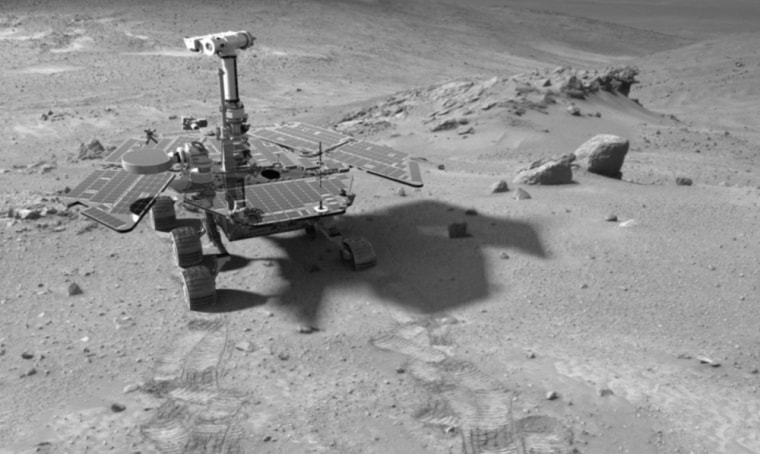NASA's Spirit rover, which is nearing its fifth year on Mars, is struggling to survive after a dust storm sapped its power, mission scientists said Tuesday.
The solar-powered Spirit produced only 89 watt-hours of energy last weekend, half the normal amount it needs to function. The culprit was a dust storm that moved over Spirit's site near the Martian equatorial plains, blocking sunshine from reaching its solar panels.
To prevent Spirit from depleting its batteries, ground controllers commanded the rover to turn off heaters that warm various instruments. Engineers also instructed the spacecraft to cease communications with Earth until Thursday.
"This is a very dangerous time," said project scientist Bruce Banerdt of NASA's Jet Propulsion Laboratory, which manages the mission. "If we don't hear from it on Thursday, we'll be extremely concerned."
The Spirit news came a day after NASA declared an end to another Mars mission, the Phoenix lander, which lasted five months. Phoenix was parked in the arctic plains and not expected to survive the Martian winter, but a dust storm there hastened its demise.
Scientists said there was reason to hope that Spirit could pull through. The latest Martian forecast suggests the dust storm over Spirit appears to have abated. Spirit's twin, Opportunity, which is exploring on the opposite end of the equator, was not affected by the storm.
Even if the storm passes, there could be damage to Spirit's instruments or a delay in getting the rover moving again if its solar panels remain dusty, Banerdt said.
